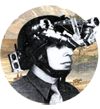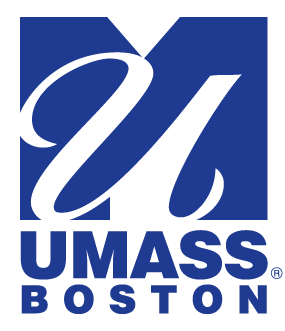Month 5: Independence + Collaboration = Success
Categories:
The past month was probably the most successful for my VISTA project so far. While this was due in no small part to the groundwork of the previous months, over the course of only the last few weeks I trained (trainers and students), recruited volunteers, made new community contacts, and produced media. I credit this productivity with a) working independently and b) communicating frequently about my work to others to involve them and get their feedback.
Mid-November started slowly, as I helped the Shows group (books concerts and events for the IMC) assume their own responsibilities, by helping to draft a new contract with the IMC Finance group, updating their Drupal site and web calendar, and training a volunteer on meeting facilitation, sound, and web/calendar administration. Having that particular group grow to be more independent and capable frees me from a lot of extra, small tasks, and saves the rest of the IMC time and effort, as well. With more time to focus on the broader goals of my assignment, I have been gradually giving closer attention to the Production group that I helped start in the summer. The Production group (site in development) manages the IMC’s media production room, loans equipment to community projects, produces original content, and offers training on multimedia. Along with Production volunteers, Nicole Pion and I started planning an IMC Film Festival for February 6-8, 2009, which will last three days and showcase a variety of genres, especially work by local/regional filmmakers, and will also include art, music, and food from local sponsoring restaurants.
Other accomplishments of the Production group, which now contains a core of six independent journalist/producers, were four new videos (a total of 3.5 hours) that we have shared with Urbana Public Television and which will also be available online at our site and YouTube channel. Coverage ranged from stories about a local activist, IMC concert footage, People’s Potluck Thanksgiving, and a Proposition 8 protest. A group of 3 volunteers filmed performances and interviews at a benefit concert for our radio station. I have also started helping the IMC’s Books to Prisoners program with a video project that they will begin shooting and editing in the New Year to highlight their presence in town, their training, and the prison libraries that they staff.
In the course of recruiting volunteers to produce new media, I did quite a bit of editing myself, especially audio, and it turns out that this is a modest source of extra income for the host organization, which makes it worthwhile. More valuable, however, is the opportunity to instruct others on how to edit. Between Shows, Production, and Books to Prisoners members, I trained three individuals who will now be ready to train others on the basics of production and got them to think about how they can utilize media technology to further their groups’ goals. Over the next few months, I will be compiling my tutorials (and other online sources) for a wiki that our VISTA supervisor Josh King is developing for the IMC (Josh has chosen Twiki, as it has revision control and is used by the global Indymedia network).
There was quite a bit of interest in learning audio recording and editing this past month, with IMC members attending a variety of public lectures, discussions, or wanting to produce their own interviews or radio commentaries. I offered a series of three one-on-one tutorials on recording field audio (using a Zoom H2); compiling a musical set list (ala the quickly arcane term, “mix tape”) for radio; and recording and editing speech for use on radio or film. I chose the free and easy Audacity for the training, and even though I know a lot of people are familiar with how to use it, I’ll attach my quick guide here just in case anyone is interested. There are many more tips and tutorials here.
The final area in which I feel I made great progress was at the IMC’s community radio station, WRFU. First, I revived the station’s Tech group, which had been inactive since before I started as a VISTA. The Tech group maintains studio equipment, updates and repairs software and Internet connectivity, and offers technical guidance for membership training. After a few e-mails about the lack of tech support, a core group of 4-6 of us decided to set up a new computer at the DJ desk, fix and label cables and mixer inputs, and begin a construction plan for more shelves, storage, and a patchbay. In September I had been responsible for training dozens of airshifters, but in the process of bringing back the Tech group, we realized that we were training more trainers (and training ourselves to be better experts and instructors at the station). Two University of Illinois graduate students in the Library Sciences department finished their radio automation and music library training manual, which I had been supervising since the fall. This manual, now available in our office next to the studio, gives DJs and tech support step-by-step instructions on how to add local music, PSAs, and other pre-produced shows to our non-live rotation, how to classify content as clean, and how to edit it if it is not clean. The system is based on ZaraRadio, iTunes, and the Juice podcast player, and the volunteers used Karen’s Directory Printer to generate a station inventory. Nicole and I visited the Library Science department for presentations on their projects and to represent the IMC, and while there we learned about other great community engagement/technology instruction programs that are going on in our town. Earlier this week the librarians even thanked me by having me on their final show of the semester for an interview about my role as a CTC VISTA.
| Attachment | Size |
|---|---|
| AUDIO_Audacity01_BasicEditing_LevelsNoiseSpeech.doc | 32 KB |











